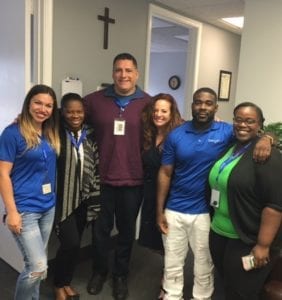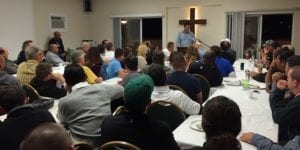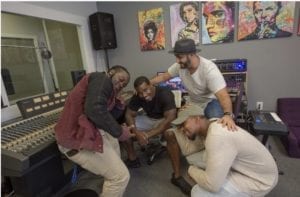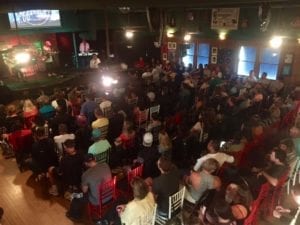The nation is facing an opioid epidemic. In May, Governor Rick Scott declared a public health crisis in Florida. Opioid overdoses claimed 582 lives in Broward in 2016, nearly two each day, which is higher than lives claimed by car accidents or gunshots, according to Broward Sheriff Scott Israel.
Fighting the Opioid Addiction
A Community Action Team, comprised of 45 to 50 treatment providers, doctors, community organizations and enforcement officials, is working hard to find solutions. And in July, 82 drug dealers and traffickers were arrested during a three-day crackdown in Broward to help curb opioid abuse and the rise in related deaths.
Unfortunately, at a time when care is most needed, unscrupulous Sober Homes in Palm Beach and Broward counties are being exposed for engaging in insurance fraud and patient brokering for financial gain, causing some seeking recovery to be exploited and relapse.
All this can make overcoming opioid addiction seem daunting; however, you can get sober in South Florida and several faith-based addiction programs are pointing the way.
J.C.’s Recovery Center
This battle takes more than just the 12-step program, claims Steve Boyarski, spiritual director of J.C.’s Recovery Center. “We practice a combination approach with the Bible in one hand and the 12 Steps in the other. It’s not just clinical, psychiatric or psychological, but also the spiritual because that God-sized hole we try to fill with drugs, sex or alcohol needs to be filled with a spiritual relationship with God.”
We believe that “if the Son sets you free, you will be free indeed” (John 8:36), said Stevie B, as he’s more commonly known. “We have people now working here who are three years sober… Myself, I was a horrific drug addict. I had a higher power, but I didn’t have the Lord. I was already in AA 15 years, but I was lost and relapsed into drugs and alcohol just a year and a half after my wife and I married. Though we were Catholics, my wife brought me to Calvary Chapel Fort Lauderdale 16 years ago. The next week I went back and gave my life to the Lord and what He has done since then is truly remarkable,” Stevie shared.
Agape AIM
Joseph Zappoli, development director for Agape AIM, agrees that traditional treatment is a part of the solution, “but if they don’t find God, they will eventually relapse.” After doing extensive research into the recovery community in South Florida, Zappoli helped open Agape’s Christian recovery program three months ago and has attracted a seasoned team of professionals. “With most of our patients in the age range of 18-30, we’ve develop things to keep them engaged,” said Zappoli.
In addition to traditional services, Agape offers a unique Rhythm 2 Recovery music therapy program that utilizes rap and other genres. Their in-house recording studio and production team provides an outlet to retell their stories through song. They also process their recovery journey through a creative writing therapy forum titled “The Purple Book Diaries.” And their innovative NeXgen aftercare program is designed to combat the ever-growing relapse rate by offering education on topics such as credit repair, Financial Peace University, sales and networking, and NLP (Neuro-Linguistic Programming), which has helped many overcome their fears, increase their confidence, and achieve greater success in their personal and professional lives and relationships.
Music Therapy Director, Tony Ray, also known as the recovery hip hop artist of Florida, is changing lives one lyric at a time. He says everyone has a soundtrack to their addiction. He can pinpoint someone who is withdrawn and do a session with him, similar to musical counseling and prayer. “God blessed me with a talent to give them their life back in a quick 3-minute song. I rearrange their mind and slip God in. God renews the mind,” Ray explained. “Putting the 12 steps and God’s word to music, a rap song or rock, is less threatening and they are able to recondition the mind to a new mindset and thought process that will spark the brain.”
His favorite verse is Jeremiah 29:11: “For I know the plans I have for you,” says the Lord. “They are plans for good and not for disaster, to give you a future and a hope” (NLT).
“A plan is better than an idea. You hope the bag is not the one with fentanyl, but God knows the plan. Take the faith from the drug dealer and put it in Him and then share what God did for you,” said Ray.

Ketna Cherubin, Anthony Acampora, Julie Woodley,
Jadus Burgess and Alexandra Louis
Faith in Recovery
Banyan Treatment Center’s Faith in Recovery program provides substance abuse and dual-diagnosis treatment from a Christian faith-based perspective. They utilize a spiritual trauma program called “In the Wildflowers,” developed by Restoring the Heart Ministries, among other services.
Anthony Acampora, Faith in Recovery program director, explained, “Since drug addiction is often the byproduct of something else, we teach them how to manage their emotions and get to the root cause. We try to get them out of their guilt and shame.”
Acampora suggests every church should have a recovery advocate or liaison. “When someone struggling with addiction attends church, they need to be met with love and understanding. Some look at the stigma of heroin, stealing for that and sticking a needle in their arm, but God looks at them through the lens of love and sees someone who is hurting and broken, who needs the love of Christ.”
Eric Oakes, chief operating officer at Banyan, agreed people are often short on compassion. “We still have trouble recognizing alcoholism exists in our own families. We are so far away from considering our family members may have a real drug problem, but opioid addiction has gone from the park bench to Park Avenue and it only wants one thing – your soul.”
Road to Freedom
The Road to Freedom at The Treatment Center is a clinically-sound, Christian drug rehab program in Lake Worth made up of pastors, Christian addiction counselors, doctors and caring professionals who are committed to the rescue mission of Jesus Christ. They are one of the few programs offering residential inpatient services, including faith-based, medically supervised detox in house.
“We’re the first stage of care and IOP (Intensive Outpatient Programs) or PHP (Partial Hospitalization Programs) are the second stage,” explained Pastor Mike Eleveld, of The Treatment Center. “Patients in detox are in misery, and we’re doing everything we can to make them feel comfortable. They’re feeling emotions they haven’t felt in a long time, feeling anxious and scared, and want people to pray with them.” They also hold church services for patients in detox who can’t leave the facility.
The Recovery Church
A few years ago, leaders at The Treatment Center became concerned after speaking with graduates from recovery programs who expressed difficulty finding a worship experience geared to them. “Some are afraid to discuss their addiction because they’re afraid of the reaction they’ll get,” said Eleveld. As a result, The Recovery Church was formed. Having outgrown their previous meeting place, this church created by the recovery community for the recovery community, meets at 7 p.m. on Wednesdays in The Bamboo Room, located at 25 South J Street in Lake Worth. Formerly a jazz club, The Bamboo Room seats 300 and they’ve been packing it out for over a year now.
Recovery Bible Study
Stevie B, of J.C.’s Recovery Center, started a similar Recovery Bible Study in downtown Fort Lauderdale 10 years ago. It’s a meeting with music, the 12 steps, a Bible teaching and a lot of energy and enthusiasm on Wednesday nights at 8:30 p.m. at First Christian Church Fort Lauderdale, 201 SE 13th Street.
“All of the recovery houses come in there, worship together, mourn together and strengthen each other,” said Stevie B. A product of Bob Barnes’ Bible Study, Stevie B decided he wanted to do something like that for the recovery community. The Recovery Bible Study is attended weekly by about 50 to 200 people.
In addition to these, there are many faith-based ministries bring hope and healing to those fighting addiction, including Celebrate Recovery, Faith Farm, Calvary House and Sonrise Mission.
“Behold, I will bring health and healing; I will heal them and reveal to them the abundance of peace and truth” (Jeremiah 33:6).
What Can the Church Do?
- Realize there are addicts and alcoholics among you. One in ten adults are struggling with some sort of addiction, but don’t know what to do.
- Church leaders should communicate they’re a safe place for them to come. Many are afraid they’ll be treated differently if they reveal their addiction.
- They’re going to need professional care. You can’t stop opioids cold turkey, but need a medical detox, then treatment for the disease of addiction.
For more articles by Shelly Pond, please visit goodnewsfl.org/author/shelly/




Comments